The pandemic wreaked havoc on the economy and healthcare sector over the past three years, but there is hope with a new government in place
With a change in government, there are expectations that the economy will improve, and the ringgit strengthen with both foreign and domestic investments increasing.
But even so, it will take time for the effects to trickle down to the man in the street. After all, the last three years have not been easy for businesses, including the healthcare industry since the pandemic began in early 2020.
The rubber gloves bubble has all but burst and prices of medications have risen sharply, not to mention shortages in supply. Private hospitals are lamenting that their costs have increased. Even health insurers raised their premiums by a hefty 20-30 per cent for no apparent reason despite protests from policyholders.
The previous government, especially its ministers, seemed rather clueless about what to do and did little to address these pressing issues. Malaysians are hopeful the new unity government will put policies and measures in place to alleviate the healthcare burden of the people, especially those in the B40 and M20 category.
The Health spoke to several industry players and stakeholders to get their take on what lies ahead for 2023. Not surprising, many cautioned that next year would be a tough year given that the global outlook will also not be rosy.
Malaysian Medical Association (MMA) President Dr Muruga Raj said providing affordable healthcare services and reducing the occurrence of diseases and their complications will be among the main challenges.
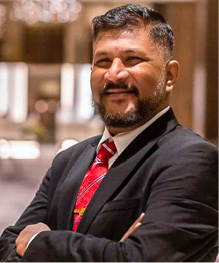
“When we say affordable healthcare, we are referring to the government sector which is the main provider. Thus, to provide the services, we need enough qualified personnel in all fields, from doctors to paramedics and also from the allied health groups.
“There will be the need for facilities, and to synergise the services, hence government–private partnership will be the solution,” he added.
“Also, many of our public healthcare facilities are ageing and need repairs and upgrades. In September, the health ministry identified 2,732 public clinics in run-down condition.
He said that budgeting for both human resources and maintenance of public healthcare facilities would be a challenge as both are vital in ensuring that the system is functioning optimally.
Pharmaceutical industry outlook
The recent medicine shortage is an eye opener, said Professor Amrahi Buang, President of the Malaysian Pharmacists Society (MPS). It showed that there is a medicines security issue in this country to face any pandemic, untoward circumstances, or calamities like big floods.
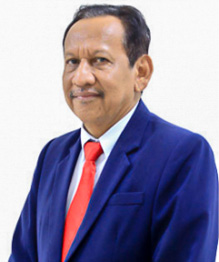
“Most medicines are imported, and the Russia – Ukraine war is affecting the pharmaceutical industry in terms of active pharmaceutical ingredients (API), excipients, packaging, and others.
“The government must address this for the short and long term and create an ecosystem that supports local production.
“Essential medicines list must be updated, and efforts must be made to ensure its supplies in any situation that the country is facing, and it should cover across the regions in the country. National stockpiles must be in place.”
Regional collaboration, he said, is needed to support this effort. A good example is vaccines. Malaysia has the capability and the capacity to produce halal-certified vaccines for the world, but this must be done in collaboration with multinational companies.
 On prospects for the halal pharmaceutical sector, Amrahi believes Malaysia has huge potential as the global market for halal pharmaceuticals has increased tremendously, and the government should focus on this sector.
On prospects for the halal pharmaceutical sector, Amrahi believes Malaysia has huge potential as the global market for halal pharmaceuticals has increased tremendously, and the government should focus on this sector.
“The focus should not only be on the finished products but also active pharmaceutical ingredients, excipients, and related products.
“The government must have a clear policy on this. Halal pharmaceuticals is a blue ocean, and the country has explored this through Halal Development Corporation Berhad (HDC). This will require capacity building which leads to job creation.”
Preventing diseases is important
According to Dr Muruga, Malaysia’s public healthcare strategy should be emphasised primary prevention, which takes place before the disease happens.
However, not all diseases are preventable. Thus secondary prevention, including early screening and treatment, will be sought in this situation. Some of the diseases will leave sequelae, leading to a reduction in quality of life. Then, tertiary prevention, which includes rehabilitation, will be benefited.
“The thinking needs to change. We need to be proactive when it comes to looking after our health. Of course, the government has a role in supporting health with policies. Still, we must take responsibility for our health by ensuring we go for our scheduled medical check-ups and adopt a healthy lifestyle, or more time, money, and resources will be spent on sick care.
“We must also emphasise the importance of health from a young age in schools so that healthy lifestyle habits will continue into adulthood.
“The government is currently overburdened with the management of mostly preventable diseases. Therefore, primary care and its role in preventing diseases must be enhanced. The 8,000 private GPs nationwide can play a greater role in the country’s strategy for early prevention of diseases.”
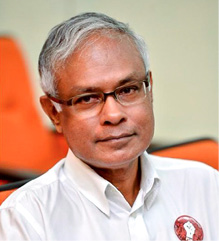
Likewise, Parti Sosialis Malaysia (PSM) President Dr Michael Jeyakumar encouraged the involvement of GPs in Malaysia in a NHS like scheme to provide care for diabetic and hypertensive patients.
Pro-Vice Chancellor of Universiti Kebangsaan Malaysia (KL Campus) Prof Datuk Dr Hanafiah Harunarashid said: “Bold, strategic actions and strong leadership are needed to push ahead – we may see further significant reforms and initiatives to be introduced to tackle the problems of non-communicable diseases (NCDs) and social determinants of health.
“We have already seen the previously unthinkable generational end game bill being tabled in parliament for the first time, with great support from the public. Hopefully, this trend will continue as we progress into an uncertain future.”

Healthcare under the new leadership
With the new government in place, there is much expectation and push for reforms to the healthcare system.
“We hope to see the expansion of healthcare services, particularly in the rural areas. Some specialist services are unavailable in some states, and as a result, some patients need to travel to other states to access certain services,” said Dr Muruga.
“We also hope the congestion we see at public healthcare facilities and the burnout experienced by healthcare workers can be addressed. We believe this issue can be overcome with improved planning of human resources.
“To further reduce the congestion, the MMA had suggested that some of the primary healthcare services be outsourced to the private GPs.”
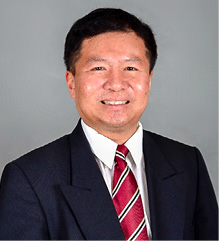
Meanwhile, Dr Hanafiah shared: “With the new government promising to address the immediate effects of the rising cost of living, it is hoped there will be effective policy mechanisms and support initiatives to balance the already high out-of-pocket health expenses borne by patients and their families.
“It seems pertinent the issue of sustainable health financing to be raised again for traction to seek better, permanent, yet pragmatic solutions to ensure a viable healthcare ecosystem in Malaysia.”
In regards to rising healthcare cost, Dr Jeyakumar suggested Malaysia to withdraw participation from the Comprehensive and Progressive Agreement for Trans-Pacific Partnership (CPTPP), as it will cause an increase in the price of medicines and medical supplies.
The public healthcare sector, he said, also needs to improve its quality of care and reduce its waiting time, ensuring public will not require the high cost service offered in private hospitals. Instead they will opt for the affordable service offered in public hospitals.
Therefore, extra funds is required to employ more doctors and nurses and to increase treatment facilities in the public hospitals. “The healthcare sector budget needs to be increased to RM40 billion for 2023 and RM48 billion for 2024.
“Although all three major coalitions promised to increase the health budget, we are not sure if this newly formed government will do it because there are a lot of other issues to look into,” he said, adding the budget deficit is already huge, and there is uncertainty of whether the newly appointed Health Minister will lobby strongly enough for the funds.
Meanwhile, Amrahi wondered if there would be a change in policy with the new Health Minister.
“The new Minister must continue with the Health White Paper since a lot has been done in this aspect to face the future of the health system in the country. A massive change needs to be done since the current one is not sustainable,” he said.
“The rakyat has voted in the GE15, and the government must consider the challenges it is facing now and in the near future in 2023. And the new government must face this challenge strategically involving all with the principle of one government and one society approach.”
Healthcare tourism is picking up
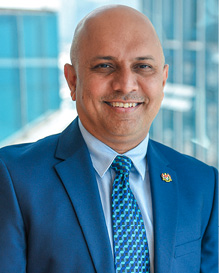
Malaysian Healthcare Travel Council (MHTC) CEO Mohd Daud Mohd Ariff said with a foundation that has continuously been fortified for over a decade, Malaysia Healthcare is ready to embark on a new phase.
“We are well-poised to embark on the next phase of the Malaysia Healthcare Travel Industry Blueprint (2021-2025) in 2023 to Rebuild the brand to be stronger and better whilst enhancing the delivery of seamless end-to-end experiences to all healthcare travellers.”
In this Rebuild phase, he explained, the industry will continue to focus on providing the “Best Malaysia Healthcare Travel Experience” by leveraging on strengths in three key pillars:
- Healthcare Travel Ecosystem – focusing on enhancing service quality and experience of care
- Malaysia Healthcare Brand – to increase brand cohesiveness across key touchpoints and amplify our brand equity in core markets
- Markets – growing beyond primary markets and exploring more niche markets to strengthen the presence
“The new phase will also see efforts in forging industry sustainability and resilience, driving forward with a focus on both curative and preventive treatments as well as several niche branding initiatives such as in cardiology, oncology, fertility, and dental treatments as well as Premium Wellness offerings, inviting healthcare travellers to experience and rediscover the best of healthcare in Malaysia,” he said. – The Health








